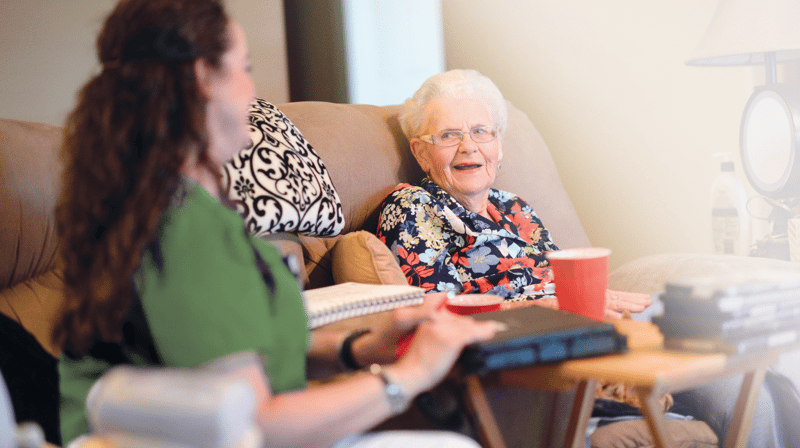We’re a society that plans. Family vacations. Retirement savings. Weddings and birthday parties. Reservations for our favorite restaurant or a trip to the local movie theater. We plan these events in our lives because we want to be prepared and because we know that good planning will generally yield good results.
[action 1]
Unfortunately, we’re not a society that plans everything – especially when it comes to how we’re going to live the last months of our life.
While we might choose to get our affairs in order, finalize our will, and even consider funeral arrangements, we rarely plan ahead for the care we might require, the support that our families will need, or how we can live our final days, weeks, and months in a way that is meaningful to us.
Who can blame us? With all the advances in modern medicine, we have come to believe that there’s a cure for most everything and that a terminal illness is something that happens to someone else. To acknowledge our own mortality – much less to plan for it – seems like a concession that we won’t live forever; and that’s not something that we’re comfortable thinking about, talking about, or planning for.
The Numbers Prove the Point
A recent study by the Kaiser Family Foundation proved this point, finding that only 27% of Americans have written down their wishes for end-of-life care and only 11% have talked to a doctor about their wishes.
In this same study, researchers found that most Americans (71%) say that they would prefer to die at home than in a facility but that a smaller share (41%) actually expect to do so.
And when asked to think about what’s most important at the time of their death, most Americans cited “making sure their family is not burdened financially by their care,” “having loved ones around them,” “being at peace spiritually,” and “being comfortable and without pain.”
Interestingly, all of these wishes were cited nearly twice as often as “living as long as possible.”
Then why aren’t we taking time to talk about and document our wishes so that we might live all our days in a way that’s consistent with our priorities?
Most respondents in the Kaiser Family Foundation study said they just “haven’t gotten around to it.” And in my experience, this is often code for “it’s a difficult conversation to have so we’re avoiding it for as long as possible.”
The Time is Now
The unfortunate reality is that no one lives forever and that the time for these conversations is today. By ignoring the opportunity to plan ahead and think about how we want to live all the days of our life, we risk placing a significant burden on our loved ones. And, perhaps more significantly, we’re missing an opportunity to benefit from comprehensive physical, emotional, and spiritual care and support for ourselves and for our families at this critical time.
So think and talk about your priorities. Document your wishes. And share your plans with your loved ones and your healthcare professionals.
There’s no shame in admitting our own mortality or in recognizing that we can’t face it alone. The greater shame is in missing out on the opportunity to live on our own terms because we’re too afraid to start the conversation.
Learn more and get resources to support you in discussing and documenting your wishes.
And to learn more about hospice and whether someone you love might benefit from hospice care, take our interactive “Is Hospice the Answer?” quiz here.




